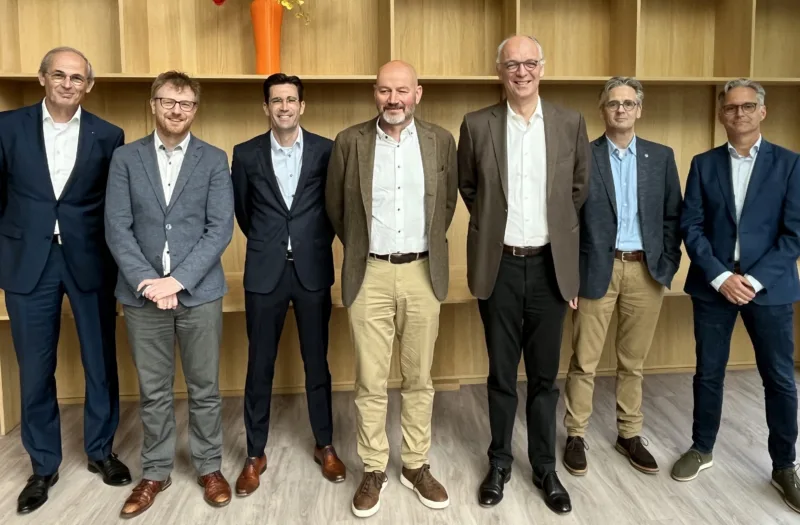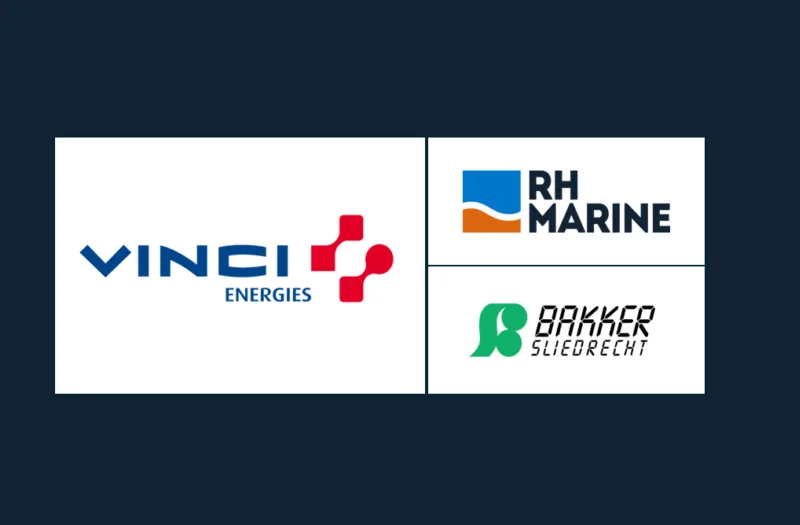
Bakker Sliedrecht engineer works on the latest modifications to the Power Management System.
Together with 20 other partners, the two sister companies are part of a maritime consortium that has received 24 million euros of government funding for research within the MENENS programme (Methanol as Energy Step Towards Zero-Emission Dutch Shipping). This will be carried out over the next four years. Several research institutes, shipowners, dredging and offshore companies, yacht builders, shipyards and suppliers are participating in the consortium. "The idea behind the MENENS project is that the industry itself is in the lead," said Despoina Mitropoulou of RH Marine and Arend van der Velde of Bakker Sliedrecht.
Reducing CO2 emissions with methanol fuel
The MENENS programme should accelerate the use of methanol as a low-carbon fuel within Dutch shipping. This will result in a significant reduction in CO2 emissions compared to the current use of diesel. Methanol is seen internationally as one of the most viable clean fuels for large-scale application in shipping. It enables ships to sail with net zero emissions. The consortium will adapt two different ship types to test the viability of methanol fuel systems and will study six different future use cases with different operational profiles. By 2030, 30 zero-emission ships should already be in operation.
New electrical system
The use of a different fuel requires the design and development of a new electric system for ships. Bakker Sliedrecht and RH Marine want to design this new system for dredging and offshore ships, yachts and naval vessels. In these sectors, the companies have the most customers. Coordinator of the MENENS programme is Fugro, which aims to have its research vessel Fugro Pioneer running on methanol by 2023. That ship will be used as a test vessel in the coming years. Bakker Sliedrecht and RH Marine, together with research institute MARIN (Maritime Research Institute Netherlands) and TNO, are also setting up a virtual field lab where new technologies can be tested and validated.
Change from alternating current to direct current
Conventional ship electrical systems and equipment operate on alternating current. Direct current systems are also used on board, but are less common. Methanol cannot achieve the same dynamic response in engines as diesel. The use of batteries or supercapacitors should compensate for this. The same applies when methanol fuel cells are used as the main power source. They operate on direct current and therefore the entire on-board power plant will be designed as a direct current network. "The power plant reacts differently to methanol than to diesel or LNG. To ensure good performance, we need to design a power plant to which you can connect both a fuel cell, a battery and a methanol ICE generator," Van der Velde explains.
Advantages of using direct current
The main advantage of a DC grid is that less power losses can be realised. Now, inverters or variable speed drives convert AC to DC and DC back to AC. In a DC network, the inverter only needs to convert the electricity for the machines and appliances to AC once. "In the new design, fewer conversions are needed. The fewer inverters, the fewer power losses. A DC network also offers opportunities to save space and make the plant lighter," said Mitropoulou and Van der Velde.
Suitable for use of hydrogen
The new system is modular in design, so that new components can be added in the future, and should be independent of fuel generation. Mitropoulou: "We want to design a system that is as independent as possible from the future fuel source. Besides running on methanol engines or fuel cells, for example, it should also be able to run on hydrogen engines or fuel cells." According to her, digitisation will play an important role in the new system, and Industrial Internet of Things (IIOT) components will be deployed and installed. This will allow more data to be collected and analysed to see how the new systems work. "This will allow us to design a system that is smarter, safer, more efficient and reliable," she says.



